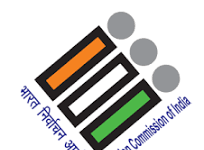
The World Health Organization’s chief scientist said Saturday that a Covid-19 variant spreading in India is more contagious and may be evading vaccine protections, contributing to the country’s explosive outbreak.
In an interview with AFP, Soumya Swaminathan warned that “the epidemiological features that we see in India today do indicate that it’s an extremely rapidly spreading variant”.
For the first time, India recorded over 4,000 Covid-19 deaths in just 24 hours, as well as over 400,000 new infections, on Saturday.
New Delhi has struggled to contain the outbreak, which has overburdened its healthcare system, and many experts believe the official death and case numbers are greatly exaggerated.
Swaminathan, an Indian paediatrician and clinical scientist, stated that the B.1.617 variant of Covid-19, discovered in India last October, was clearly a factor in the disaster unfolding in her homeland.
“There have been many accelerators that are fed into this,” the 62-year-old said, stressing that “a more rapidly spreading virus is one of them”.
The WHO recently designated B.1.617 as a “variant of interest,” which includes several sub-lineages with slightly different mutations and characteristics.
Resistant to antibodies?
But it has so far refrained from adding it to its short list of “variant of concern” — a designation that indicates it is more dangerous than the original virus because it is more transmissible, deadly, or immune to vaccine protection.
In the meantime, several national health authorities, including those in the United States and the United Kingdom, have declared B.1.617 a variant of concern, and Swaminathan expects the WHO to follow suit soon.
“B 1.617 is likely to be a variant of concern because it has some mutations which increase transmission, and which also potentially could make (it) resistant to antibodies that are generated by vaccination or by natural infection,” she said.
She insisted, however, that the variant alone could not be blamed for India’s dramatic increase in cases and deaths, lamenting that the country had “huge social mixing and large gatherings” and appeared to have let down its guard.
The staggering rise in infections has been blamed in part on mass election rallies held by Prime Minister Narendra Modi and other politicians.
Even as many Indians believed the crisis was over and stopped wearing masks and other protective measures, the virus continued to spread quietly.









